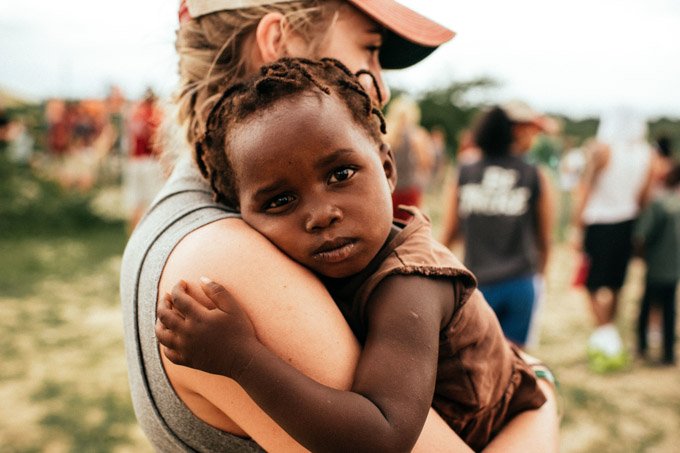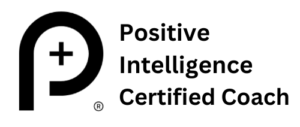
Photo credit: Madi Robson via Unsplash
I’m not going to lie. When I wrote A Mindful Equation for Post-Election Healing the night before the presidential election, I thought I was writing it for Trump supporters. Surprise!
Time to dig deep and move from theory to practice. This is what mindfulness in the trenches looks like.
Like the rest of us on the losing end of the U.S. Electoral College vote, I felt as though I had been kicked in the stomach. I observed my reactions carefully, since this was a perfect test case for my mindfulness skills.
I felt the emotions in my body—shock, sadness, fear, anxiety, and the overwhelming feeling of being let down by half of our citizens (on both sides of the political spectrum – those who voted for Trump and those who didn’t come out to vote at all).
But even though I shuffled through the day after in a daze, experiencing the physical sensations that used to plague me when I suffered from depression, I didn’t resist the outcome. I kept the mindful equation I wrote about in my pre-election post at the forefront:
Pain X Resistance = Suffering. *
The pain was real, but resisting the reality of the vote results would multiply my suffering.
The only action I could take the day after the election was to invite a homeless immigrant into a restaurant, buy him a hot bowl of soup, and give him one of the extra soccer blankets I keep in my car. As I sat with him and tried to comprehend the story he was telling me in broken English (once again wishing desperately that I had learned Spanish when I was younger), I wondered why this small act felt so rebellious and gratifying.
I learned the answer a couple of days later.
Science Friday to the Rescue
Kelly McGonigal, a psychologist and researcher at the Stanford Center for Compassion and Altruism, explained it to Ira Flato on NPR’s Science Friday on November 11.
She described the election outcome as triggering a sense of “social mistrust.”
McGonigal explained that social mistrust is a stress response to not feeling safe, respected, or valued in our community. It’s a deeper, more toxic level of stress than your normal everyday stress, with even stronger physiological impacts on our health and wellbeing.
We can’t eliminate all stress from our lives, she noted. Stress is a normal signal that something we care about is at stake. But we don’t want stress to paralyze us, make us spiral downward emotionally, or make us sick.
If you’re planning your move out of the country or burning Trump effigies, you’re stuck in the social mistrust stress response. Your immune system is also being compromised and the very structure of your cells may be impacted from this toxic kind of stress.
Here’s the cool part, though. We have more than one type of stress response from which to choose.
How to Transform Your Stress from Paralyzing to Empowering
Instead of falling into the dark hole of social mistrust, we can choose the “challenge response,” which instills energy and courage. “[The challenge response] creates the biology of courage so that you can act,” McGonigal explains.
Unlike the resistance-based social mistrust response, which can lead to potentially destructive reactivity, the challenge response empowers us to be the change we want to see in the world.
“Tend and befriend” is yet another type of stress response that translates into more empathy for others and leads to a desire to come together to do something positive.
These are the types of positive stress responses that underlie the peaceful unity-inspired gatherings bubbling up around the country. Listening to high school students interviewed during their peaceful march on Washington, D.C., this week, it’s clear that this sort of action has encouraged our young people that they are not alone, that their community still has their back, and that they are sending a signal to the incoming administration that this country will not allow hate to prevail.
Just Remember: People Can Change
McGonigal said that the key to shifting to a more productive stress response is to believe that whoever you feel threatened by—both the individual(s) and the situation—can change.
A study at Stanford found that people who had been reminded that humans generally have the capacity to change were more likely to speak up against bias, racism, or sexism. This reminder also made people more willing to interact and collaborate with those who expressed that bias. “And they were less likely to avoid those people or to try to humiliate them,” McGonigal continued.
Wouldn’t that be refreshing?
This is exactly the type of mindful listening and positive interaction that we need to heal as a country.
The crazy part is, despite the language barrier, I felt more connection with Jose the day after the election as he struggled with his limited English than I did with half of my country. Sitting across from him, I saw his humanity, felt his pain, connected with his essence. I suppose it’s time to activate my “challenge” and “tend and befriend” responses more broadly, including with the other half of our population.
Given the difficult logistics of that, I’ll start with Kelly McGonigal’s advice to deal with post-election stress:
“If you don’t know what to do about politics, do something good for a neighbor. Do something good for a friend. Do something good for a stranger.”
Here’s One Way for Local Friends to Come Together
For my Vienna/Oakton, Virginia friends (and anybody else who would like to come), I invite you to join us at noon on Sunday, November 20th, for “Vienna Unites for Tolerance, Kindness, and Inclusion.” We will walk from Vienna’s Town Hall to the Town Green to reaffirm the importance of the values that we as a community hold so dearly. For more information, visit the Facebook event here. Hope to see you there!
I will also join the masses at The Women’s March on Washington on January 21st (more details on FB here). I’ll be making buttons with photographs of my friends who would like to be there but can’t. If you would like me to “carry you along,” just send me your photo!
* From One Second Ahead: Enhance Your Performance at Work with Mindfulness by Rasmus Hougaard et al, (Palgrave Macmillion 2016).
***
If you enjoyed today’s post and are not yet a subscriber, please join my Readers Circle and receive my free ebook Six Playfully Mindful Strategies to Beat Procrastination and Boost Productivity. You’ll also receive updates on my new book, Blooming into Mindfulness, weekly blog posts, and photography, speaking engagement, and workshop news. Email is much more reliable than social media in getting information to you in a timely fashion, so sign up to make sure you’re in the loop! (I promise not to share your address or send you spam.)
And if you know someone else who might benefit from an extra dose of calm in their lives, please spread the word! Social media likes and shares are always appreciated.
Finally, if you find typos anywhere on my site, I’d be grateful if you let me know. I hate typos! Contact me so that I can correct the error. Thank you!


